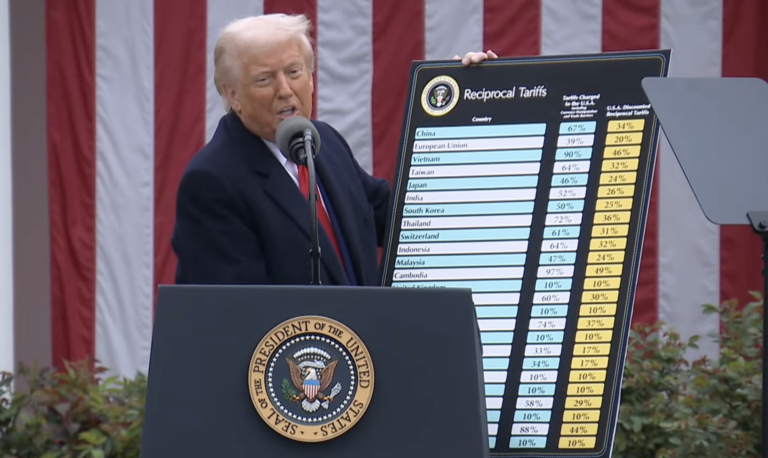(The Center Square) – Victor Schwartz has been importing wine for nearly four decades, little of which prepared him to deal with President Donald Trump’s on-again, off-again tariffs.
The founder of New York-based wine and spirit importers VOS Selections is trying to run a business that imports from 16 countries as tariffs seemingly change on a whim. But that’s just one challenge in the heavily regulated alcohol industry. Schwartz has set prices with the state of New York. So, during Trump’s halting and constantly changing tariff rollouts at the beginning of April, Schwartz was setting prices for May, another challenge given the likelihood of changing prices.
Schwartz and his team of 19 employees reviewed hundreds of products by SKU, or stock-keeping unit codes, to try to determine how tariffs would affect their inventory.
“We had to strategize with a very cloudy crystal ball in terms of what our pricing was going to be, how much of an impact was going to happen and how much could a particular product afford in terms of a price increase,” he told The Center Square.
In the end, some of it came down to where the company was going to take a loss.
“You had to make decisions on where you were going to eat it,” Shwartz said.
Schwartz was so frustrated that he and other business owners filed a lawsuit against Trump and his administration over the tariffs.
California Gov. Gavin Newsom filed a similar lawsuit alleging that Trump doesn’t have the power he thinks he has to impose tariffs under the International Emergency Economic Powers Act.
Liberty Justice Center, the Texas nonprofit that filed suit on behalf of VOS Selections and four other businesses, on Friday asked a judge for a temporary restraining order to stop tariffs from going into effect while the court determines how to proceed.
The group’s 68-page request asks for a temporary restraining order to prevent the implementation of the April 2 tariffs Trump announced.
“The power claimed by the President here is extreme: he claims the power to unilaterally impose infinite tariffs of his choosing on any country he chooses – even countries with which we run a trade surplus,” the TRO request notes. “Any grant of such authority by Congress to the President should qualify as a major question subject to the strictest judicial scrutiny – which this claim of authority under IEEPA cannot survive.”
California’s lawsuit noted the word “tariffs” doesn’t appear in the 1977 law and that no previous president – except Trump briefly during his first term – has used the IEEPA to impose tariffs. Both the California suit and the LJC suit claim Congress, not the president, has the power to impose tariffs.
The LJC suit says IEEPA was passed to curb presidential power.
“The statute was passed in 1977, in the wake of various presidential scandals that motivated Congress to attempt to cabin the president’s emergency powers – the entire point was to take away power the President had previously asserted, and abused, under the Trading with the Enemy Act of 1917,” the legal filing notes.
It further states: “If Congress had wanted to include broad tariff powers as part of IEEPA’s grant of emergency authority, it could have said as much.”
Trump has made bold promises about his tariffs on the campaign trail and since inauguration. He has said tariffs will make the U.S. “rich as hell,” bring back manufacturing jobs lost to lower-wage countries in decades past, and shift the tax burden away from U.S. families.
A tariff is a tax on imported goods. The importer pays the tax and can either absorb the loss or pass the tax on to consumers in the form of higher prices.
In his “Liberation Day” speech, Trump said foreign nations for decades have stolen American jobs, factories and industries. He said the tariffs would bring in new jobs, factories and industries and return the U.S. to a manufacturing superpower.
“Our country and its taxpayers have been ripped off for more than 50 years,” Trump said. “But it is not going to happen anymore.”
Some nations, including China, have responded with retaliatory tariffs on U.S. goods. Others have signaled they are eager to make a deal with the Trump administration. Trump has not yet announced any trade deals. Trump paused the higher tariffs for 90 days, giving his administration limited time to make deals with 75 nations the White House said reached out seeking trade negotiations.

